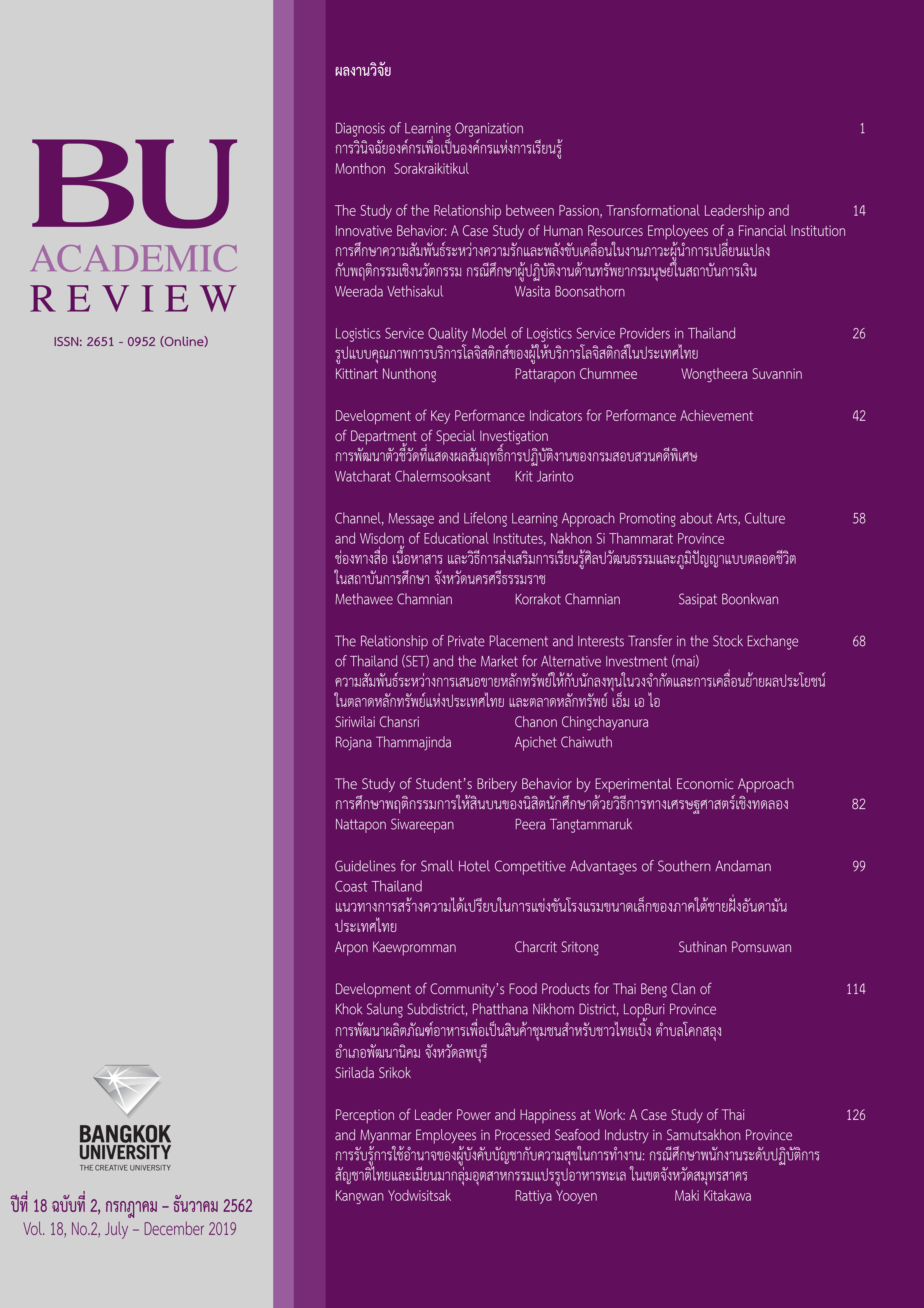Logistics Service Quality Model of Logistics Service Providers in Thailand
Main Article Content
Abstract
The purposes of this research are 1) to observe service quality of logistics service providers in Thailand, 2) to explore logistics service quality of logistics service providers in Thailand, and 3) to explore logistics service quality model affecting loyalty in logistics service business in Thailand. This research uses mixed methodology and the key informants for qualitative research are experts, academics, managers, assistant managers, heads of division, or employees who are responsible for logistics management from organizations outsourcing logistics activities and logistics service providers. Six participants were selected by using purposive sampling method. Content analysis was used to analyze data. The result revealed that there are two variables in addition to logistics service quality variables derived from literature reviews: flexibility in service quality, and relationship with customers. In the quantitative part, the population whose number is unknown are managers, assistant managers, heads of division, or employees who are responsible for logistics management from organizations outsourcing logistics activities to export products. Multi-stage sampling method was used and 526 respondents were selected. Content analysis, descriptive statistics, exploratory factor analysis (EFA), and structural equation modeling (SEM) were conducted. By using content analysis and exploratory factor analysis, the research found two more functional logistics service quality factors which are flexibility and relationship. The results from SEM revealed that logostics service quality model and satisfaction significantly affected attitudinal loyalty and behavioral loyalty which are consistent with the empirical data. Functional logistics service quality and performance logistics service quality affected attitudinal loyalty and behavioral loyalty with satisfaction as a mediator.
Article Details
The manuscript submitted for publication must be the original version, submitted only to this particular journal with no prior acceptance for publication elsewhere in other academic journals. The manuscript must also not violate the copyright issue by means of plagiarism.


